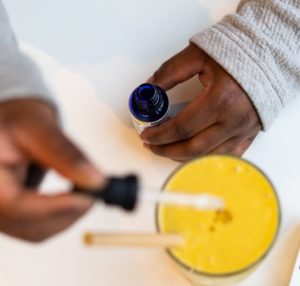
Blog
The Regulation Files: CBD
Consumer demand for CBD products is skyrocketing across the United States. Yet the lack of clear, consistent and aligned national regulations for these products, and the absence of methodical testing, threshold and safety requirements brings product safety into question. Without a clear regulatory framework, companies are forced to make sense of and comply with a maze of inconsistent, and often contradictory, state and local regulations. To consumers, this means a product purchased one place may be different than an identical product bought elsewhere. If not addressed, the status quo will lead to confusion, waning consumer trust and supply chain challenges. In short, a regulatory mess.
Smart, clearly articulated CBD regulations arm consumers with the information they need to make informed choices. But ill-conceived regulations do just the opposite, sowing confusion and distrust.
Our Stance
The recent public meeting started a dialogue on uniform, nationwide regulations for CBD. The FDA should pursue a transparent regulatory process to develop clear rules and requirements. This should include consistent definitions for production, testing standards and thresholds for marketing claims like “THC-free.” The establishment of consistent, clear regulations will empower consumers to make smart decisions, bolster safe products and allow for an effectively functioning market.
A Bit More Detail
Consumer demand for CBD is growing rapidly and is projected to surpass $13 billion in 2019. Without clear federal guidance, states have been scrambling to keep up — and each one is taking a different approach. The 2018 Farm Bill amplified confusion by legalizing hemp and certain derived products, such as CBD. The result is a patchwork of state-level CBD laws that ineffectively ensure safety and quality, undermine informed decisions and short-circuit the industry’s ability to respond to consumer demand.
Consistent consumer safety in question
Legal obstacles in cannabis research and gaps in knowledge related to the health and safety of products pose a risk. Additional data is needed to quantify how much CBD is safe to consume in a day. For example, if a consumer uses CBD lipstick, oil and candy in one day, is the cumulative dose safe? The cannabis plant is also a bioaccumulator, meaning it absorbs heavy metals, pesticides and toxins from the soil around it. Product manufacturing facilities aren’t inspected in some states and many states can’t verify if products contain CBD at advertised levels. Clear standards are needed for the testing and control of products utilizing CBD like those that exist for other ingredients added to food, beverages and supplements.
137 state bills – and counting
There are currently 137 state bills for CBD products and hemp derivatives alone. These bills represent a growing threat of expanding the patchwork of inconsistent, confusing and contradictory laws. For example, federal law and most states declare the THC limit for CBD products at 0.3%, but Mississippi may set it at 0.1% and California has alluded to jettisoning percentages entirely. These various definitions threaten to feed distrust among Americans, disrupt the supply chain and create barriers that prevent companies from providing the CBD products that consumers want.
Licenses, labels and tests
The regulatory problems extend beyond defining CBD to include licensing, packaging and advertising. For example, in Nevada only “nail technologists” or other “wellness” providers are permitted to recommend or administer certain CBD products. These bills also involve multiple state-level agencies — from agriculture to public health to commerce — making matters even more bewildering.
Nowhere to turn
Consumers are confused about what CBD products contain, what their purpose is and whether they are regulated at all. Without federal leadership, a muddle of inconsistent state regulations will only compound this problem. In fact, a person might purchase a CBD product in one state only to find that it’s illegal in another. That’s not the commonsense regulation that American consumers deserve.
Soaring demand should not mean soaring confusion
Companies want to meet the surging demand for CBD products — just as they have for kombucha, argan oil and all things pumpkin-spiced. However, inconsistent state regulations make this difficult, if not impossible. The mounting legal questions around CBD have different answers in each state, leading to supply chain frictions. This shrinks the options for millions of interested consumers, further impeding the path to a trusted, reliable market.
A Better Solution
A clear national regulatory framework would be a substantial step toward giving consumers consistent, accurate information on CBD. Consumers are increasingly demanding these products, which has potential to create a new driver for the economy. However, to achieve that goal, FDA and other federal agencies must step up – fast. The FDA should act now to provide federal leadership in a framework for regulating CBD.
Published on August 22, 2019



